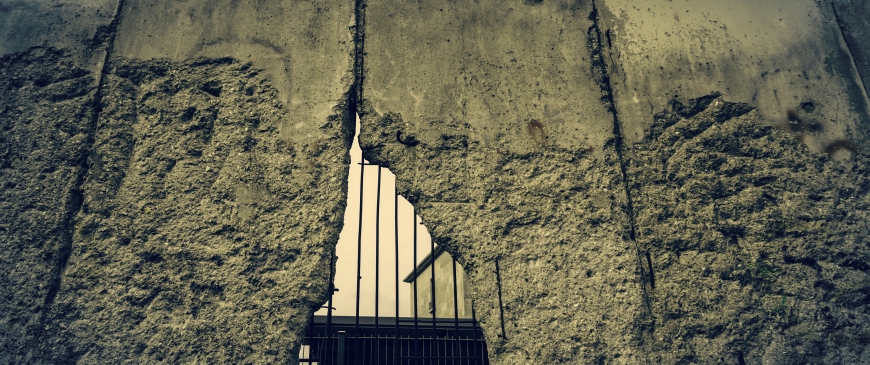
Judy Asks: Is post-1989 Europe building walls?
Post-1989 Europe is building walls, but not of the Cold War kind. Then, repressive Communist regimes knew that if they gave their people a choice most would immediately move to the West, so they kept them in with walls. Their demolition, and the end of exit visas and the persecution of those who wanted to leave their country, marked a great historical victory for the people of the Soviet bloc and for the idea of freedom. The people who broke through the divide were rightly greeted as heroes.
The walls (actual or metaphorical) that Europeans are putting up now, by contrast, are designed to keep people out, and to stop them sharing in our peace, prosperity, and good fortune. Instead of welcoming those who want to share in our freedoms, more often than not we now fear them and prefer to exclude them.
The new walls make no more sense than the old ones—while Europe needs an effective migration system to keep out criminals, terrorists, and others with no business in the union, Europe’s demographic situation is such that it should embrace those who want to come and work here and rejoice that so many still see Europe as a promised land.
Ian Bond, director of foreign policy at the Centre for European Reform
Thirty years after the fall of the Iron Curtain, the EU can be proud of a lot. It has facilitated economic and political transformation in post-Communist countries, eleven of which have joined the union. The single market’s expansion to the East has undoubtedly been an economic and political success: it created business opportunities for old member states while narrowing the income gap between them and Central and Eastern European (CEE) countries. The choice of Donald Tusk as president of the European Council in 2014 marked the growing political significance of the CEE region at that time.
Yet after the changing of the guard in 2019, with representatives of Germany, France, Belgium, and Italy taking the four key EU leadership posts, one could be forgiven for thinking either that Eastern enlargement never took place or that fault lines between East and West have reemerged. Rows over refugee quotas and the rule of law have affected East-West collaboration, including the choice of who should run key EU institutions.
The good news is that Ursula von der Leyen, the incoming European Commission president, has pledged to narrow these divisions in the EU. Time will tell, however, whether she goes down in history as a builder of bridges rather than walls.
Agata Gostyńska-Jakubowska, a senior research fellow at the Centre for European Reform
You can read the full article here.
